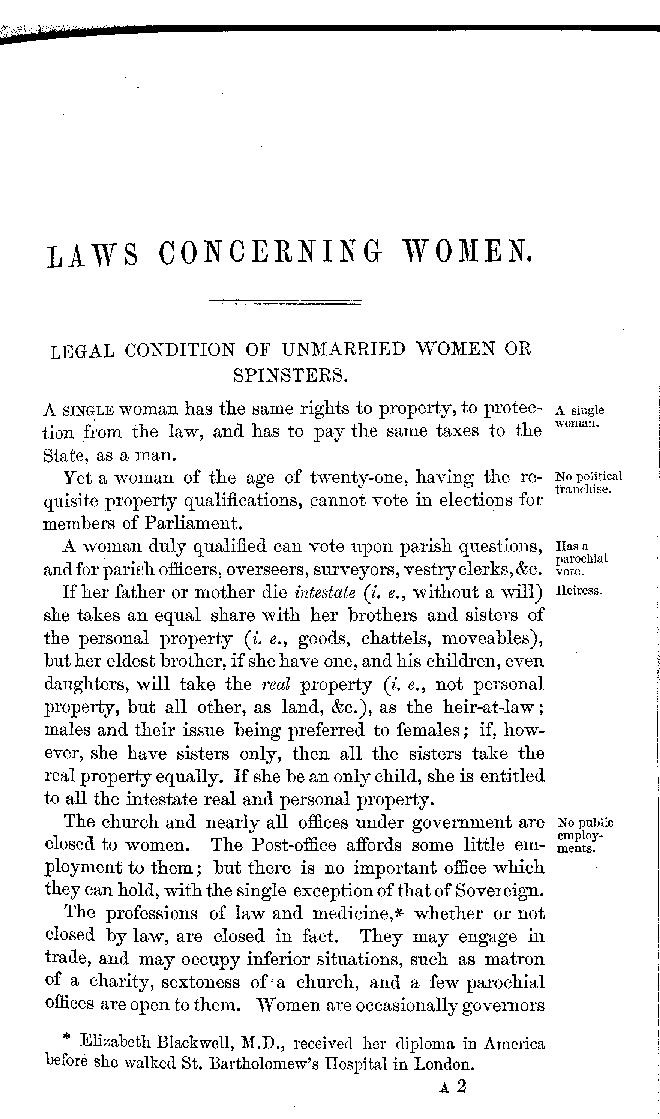LAWS CONCERNING WOMEN.
LEGAL CONDITION OF UNMARRIED WOMEN OR SPINSTERS.
A single woman.A single woman has the same rights to property, to protection from the law, and has to pay the same taxes to the State, as a man.
No political franchiseYet a woman of the age of twenty-one, having the requisite property qualifications, cannot vote in elections for members of Parliament.
Has a parochial vote.A woman duly qualified can vote upon parish questions, and for parish officers, overseers, surveyors, vestry clerks, &c.
HeiressIf her father or mother die intestate (i.e., without a will) she takes an equal share with her brothers and sisters of the personal property (i.e., goods, chattels, moveables), but her eldest brother, if she have one, and his children, even daughters, will take the real property (i.e., not personal property, but all other, as land, &c), as the heir-at-law; males and their issue being preferred to females; if, however, she have sisters only, then all the sisters take the real property equally. If she be an only child, she is entitled to all the intestate real and personal property.
No public employments.The church and nearly all offices under government are closed to women. The Post-office affords some little employment to them; but there is no important office which they can hold, with the single exception of that of Sovereign. The professions of law and medicine,[1] whether or not closed by law, are closed in fact. They may engage in trade, and may occupy inferior situations, such as matron of a charity, sextoness of a church, and a few parochial offices are open to them. Women are occasionally governors- ↑ Elizabeth Blackwell, M.D., received her diploma in America before she walked St. Bartholomew's Hospital in London.
